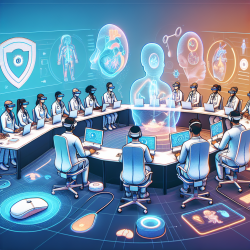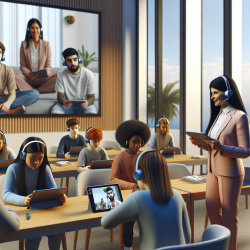As Special Education Directors, we constantly seek innovative and effective strategies to support our educators and therapists in enhancing their practice, especially when it comes to supporting students with intellectual disabilities. A critical review of the research article "Language and Communication in Mental Retardation: Development, Processes, and Intervention (1993)" reveals valuable insights that can significantly impact our approaches to language and communication development.
Firstly, it's imperative to understand the unique developmental trajectories of language and communication in individuals with intellectual disabilities. This research underscores the heterogeneity in language development, emphasizing the need for tailored interventions that consider the individual's specific strengths and challenges.
Practitioners can improve their skills by focusing on interactive and engaging methods that promote language development. For instance, incorporating play-based and experiential learning activities can facilitate meaningful language acquisition and usage. Additionally, leveraging technology, such as specialized apps and software, can provide interactive opportunities for students to practice language skills in a supportive environment.
Another key takeaway from the research is the importance of early intervention and the role of family involvement. Practitioners should advocate for and implement programs that engage families as active participants in the language development process. Providing families with resources and strategies to support language development at home can extend learning opportunities beyond the classroom and foster a consistent language-rich environment.
Moreover, continuous professional development is crucial for practitioners working with this population. Engaging in further research, attending workshops, and participating in professional networks can enhance understanding and implementation of evidence-based practices in language and communication development.
Implementing the outcomes of this research requires a collaborative approach, involving educators, speech-language pathologists, families, and the students themselves. By fostering an inclusive and supportive learning environment, practitioners can significantly impact the language and communication skills of individuals with intellectual disabilities, enhancing their ability to express themselves and interact with the world around them.
To read the original research paper, please follow this link: Language and Communication in Mental Retardation: Development, Processes, and Intervention (1993).










